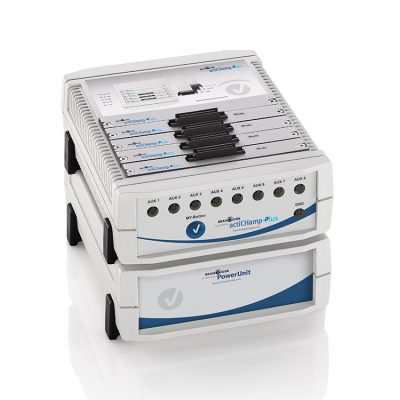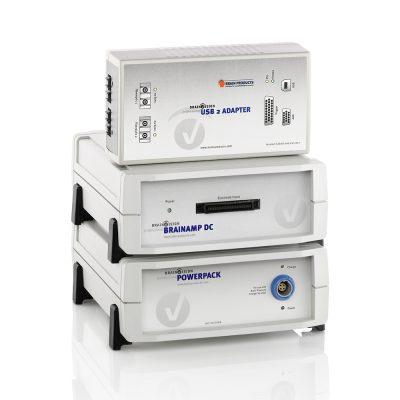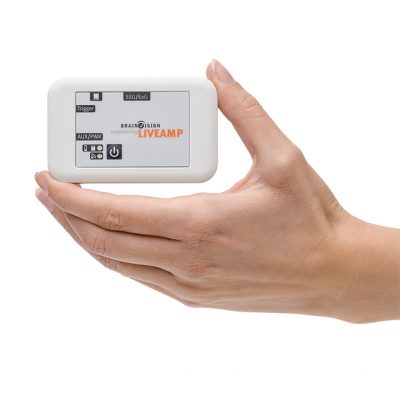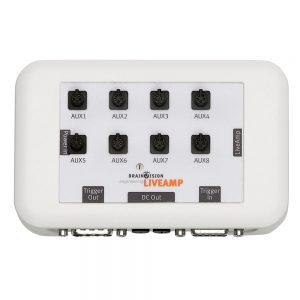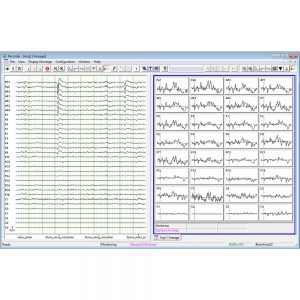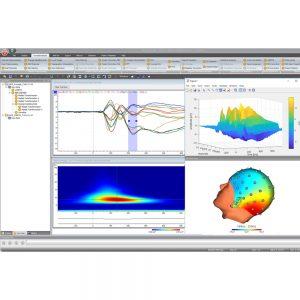Sensors for the lab environment

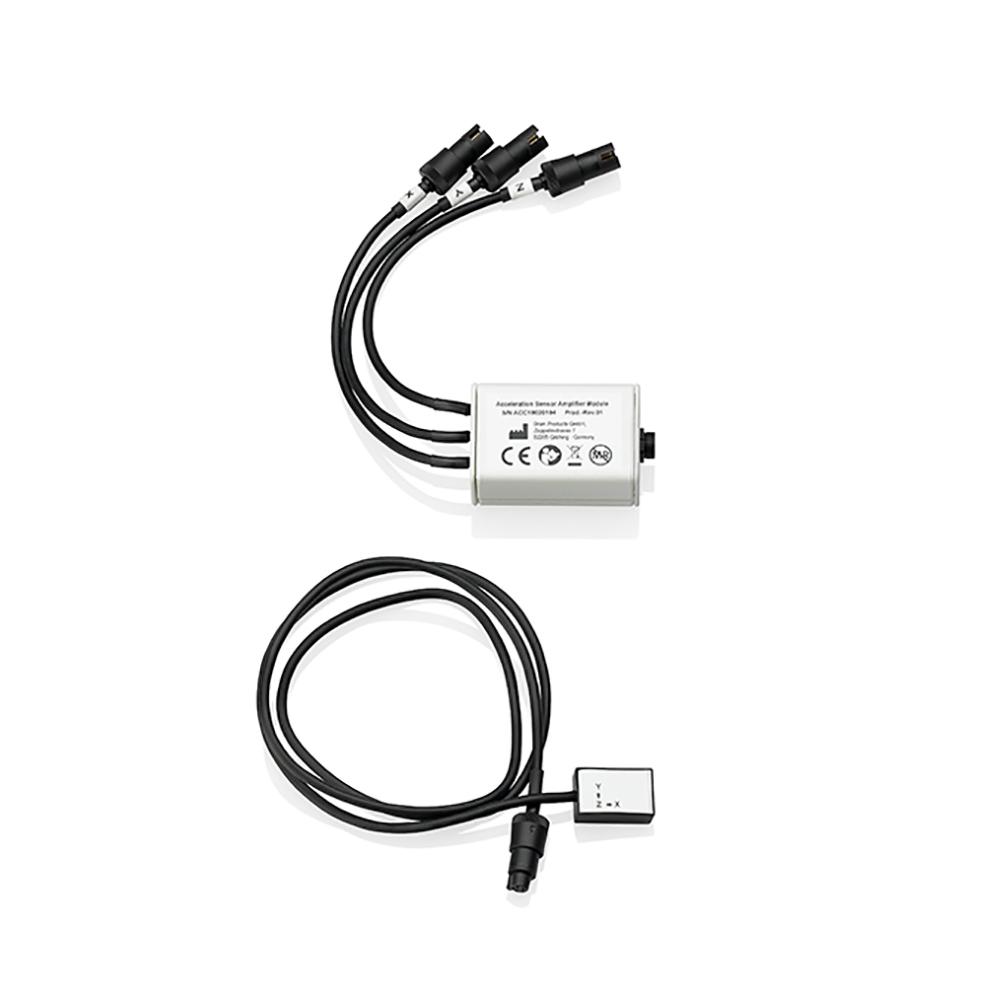
3D Acceleration Sensor
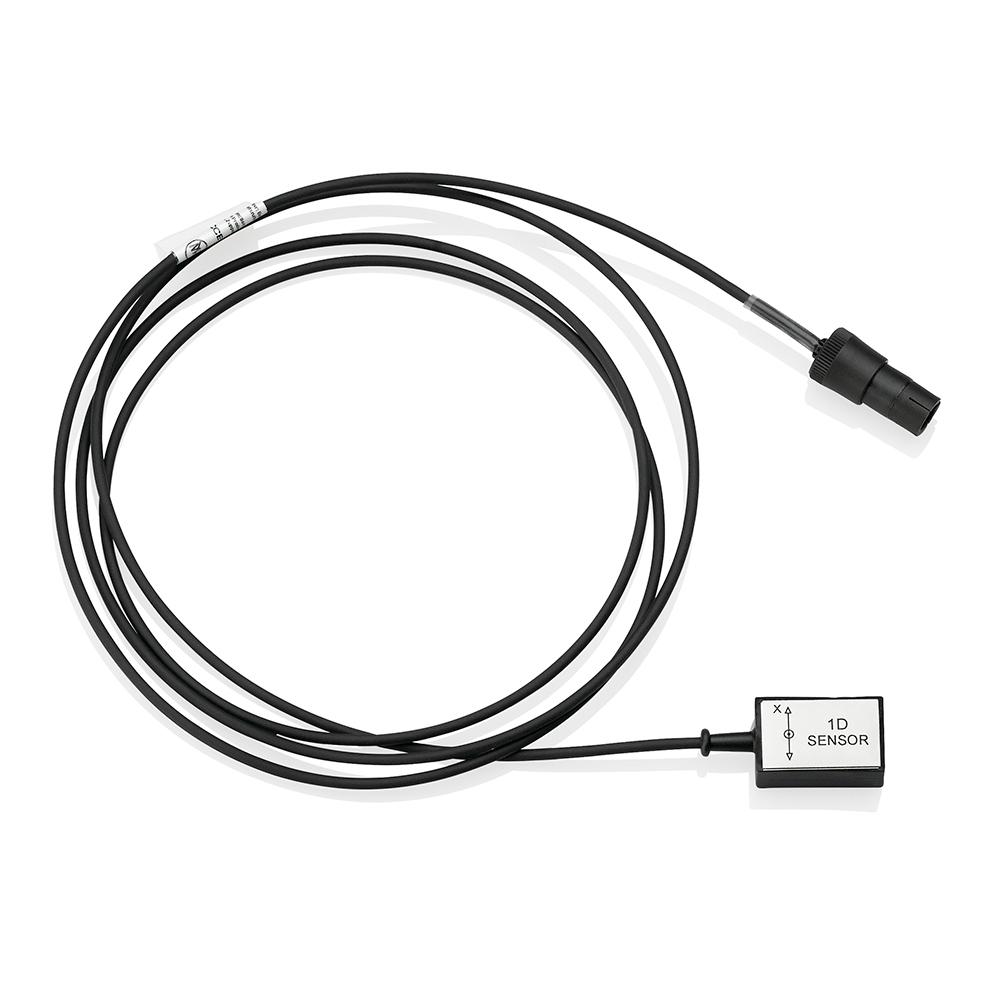
1D Acceleration Sensor
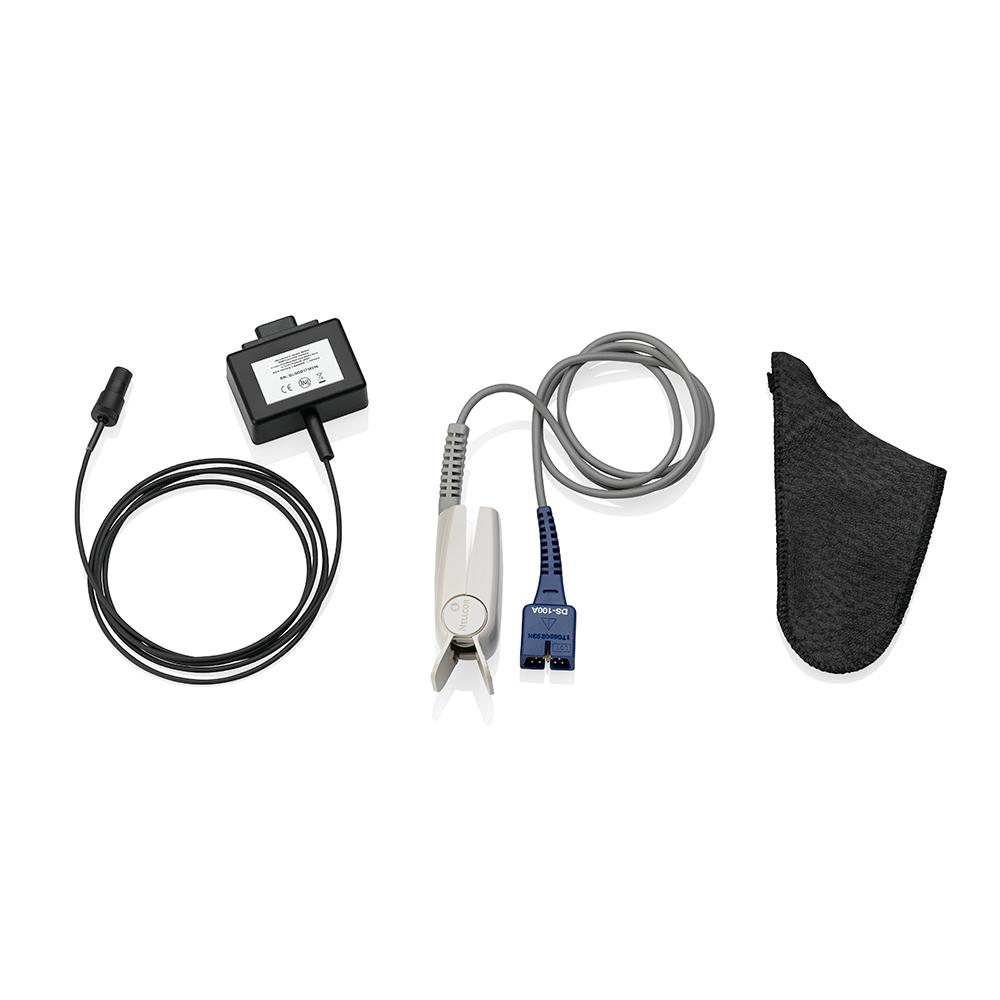
Blood Pulse Sensor
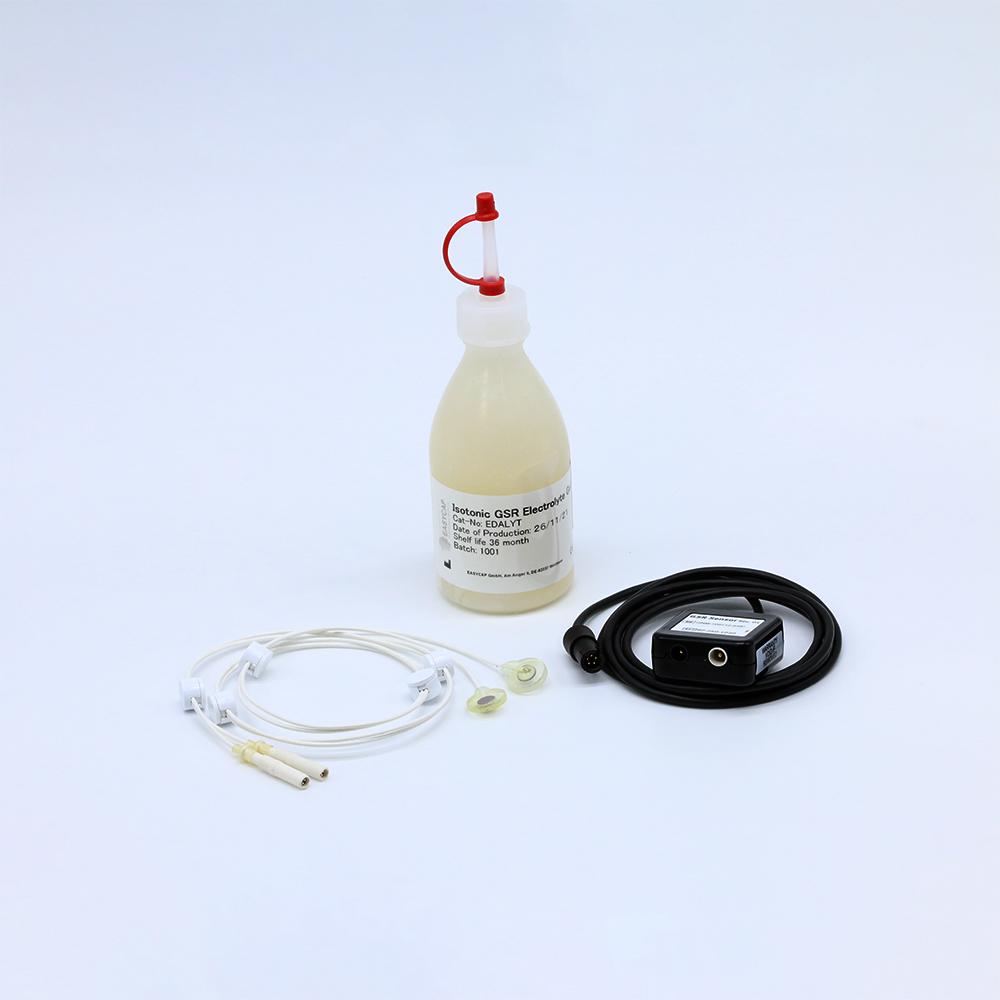
GSR Sensor
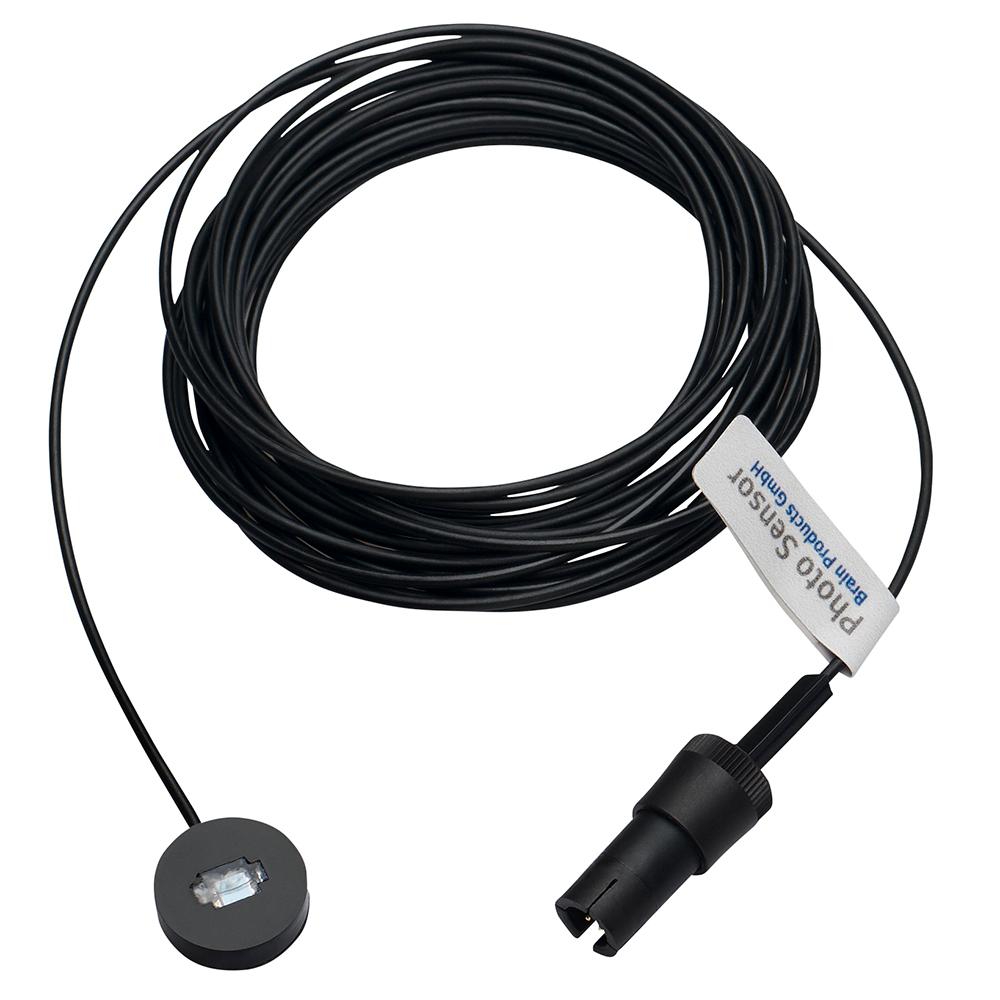
Photo Sensor
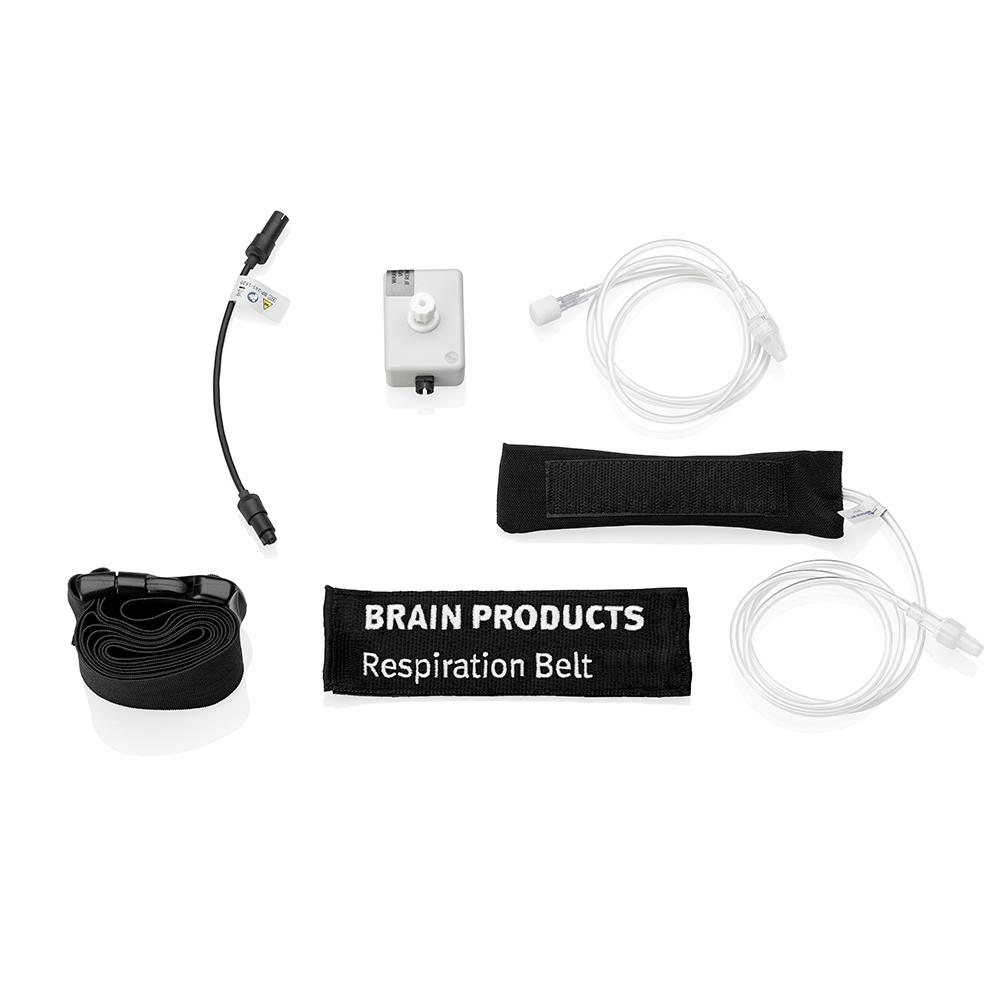
Respiration Belt
Acceleration Sensor (1D and 3D)
Blood Pulse Sensor
GSR Sensor
Photo Sensor
Respiration Belt
Temperature Sensor
BIP2AUX adapter
Sensors for peripheral signal recordings in the lab environment
Brain Products has developed and offers a large variety of sensors. All of them are manufactured to meet the highest safety standards and are powered directly from the electrically isolated amplifiers.
3D Acceleration Sensor
The 3D Accelaration Sensor captures movements in three dimensions. Its primary application is to detect and record movement/acceleration of the extremities. It consists of the sensor (2 sensors with cables of different lengths are supplied) and a pre-amplifier.
For an MR-usable version of this sensor click here.
Blood Pulse Sensor
The Blood Pulse Sensor records the pulse wave by sending IR light through the finger and recording the light emitted by the oxygenated haemoglobin with a photo diode at the opposite side. It consists of a finger-clip sensor as well as an amplifier box and connects to the EEG amplifier via an auxiliary port.
GSR Sensor
The GSR Sensor measures skin conductance (SC) – a parameter for emotional and cognitive states, stress and pain. It uses the exosomatic recording principle with direct current (DC). This means that a constant voltage of 0.5 V is applied in order to acquire the skin conductance. The sensor consists of 2 surface electrodes and a GSR module, that converts the electric SC to a voltage recorded by a bipolar amplifier input. A GSR-specific gel (Edalyt) is also supplied.
For an MR-usable version of this sensor click here.
Photo Sensor
The Photo Sensor provides information on the brightness of the screen, i.e. the signal delivered by the sensor indicates when the screen turns brighter or darker. Used in combination with StimTrak, a trigger is generated when the amount of light is higher than the (customizable) threshold, which means that the exact onset of any visual stimulus can be marked. It can easily be attached to any screen with double-sided adhesive washers and connects to the auxiliary input of the amplifier.
Respiration Belt
The Respiration Belt measures the thoracic or abdominal respiratory movements and converts them into electrical voltage. It consists of an elastic belt with a pouch, a pneumatic sensor, a transducer and a cable for the connection to the amplifiers’ auxiliary ports.
For an MR-usable version of this sensor click here.
Temperature Sensor
The Temperature Sensor measures ambient or skin temperatures. Due to its very little size and weight it reacts very fast to temperature changes. For the recording of skin temperature it should be attached directly to the skin using an adhesive tape.
BIP2AUX adapter
The BIP2AUX adapter is a tiny, analogue differential DC amplifier that allows you to record bioelectrical signals with a bipolar montage (ExG signals, like EOG, ECG or EMG). The BIP2AUX adapter connects to your EEG amplifier’s AUX input and turns it into an even more versatile research tool.
| 3D Acceleration Sensor | Technical specifications |
|---|---|
| Supply voltage | ±5 V DC |
| Range | ±2 g |
| Output | 1,400 mV (neutral position) |
| Sensitivity | 1,450 mV/g ±10% |
| Gain | 3.5 |
| Dimensions | 22 mm x 14 mm x 8 mm |
| Cable length | 30/70 cm |
| Weight | 8 g |
| Miscellaneous | |
| Suitable for use in MR scanner room | No |
| Medical device | No |
| CE Marking | The Brain Products GmbH confirms the electromagnetic compatibility (EMC) of this product according to the Directive 2014/30/ EU of the European Parliament and of the Council of 26 February 2014 on the harmonisation of the laws of the Member States relating to electromagnetic compatibility. The Brain Products GmbH confirms the RoHS compliance of this product according to Directive 2011/65/EU of the European Parliament and the Council of 8 June 2011 on the restriction of the use of certain hazardous substances in electrical and electronic equipment (recast published in the Official Journal of the European Union on 1 July 2011) as well as all its amendments up to and including the Commission delegated directive (EU) 2015/863 of 31 March 2015 (published in the 0fficial Journal of the European Union on 4 June 2015). |
| GSR Sensor | Technical specifications |
|---|---|
| Supply voltage | ±5 V DC |
| Power consumption | Max. ±3.5 mA |
| Measurement principle | Constant voltage, 0.5 V |
| Linear Measurement range | 1 to 100 µS |
| Output Resolution | 25 mV / µS |
| Max. Output Level (input shorted) | Approx. 4.71 V |
| Min. Output Level (open input) | Approx. 0.01 V |
| Dimensions (H x W x D) | 15 mm x 36 mm x 36 mm |
| Weight | 30 g |
| Miscellaneous | |
| Suitable for use in MR scanner room | No |
| Medical device | No |
| CE Marking | The Brain Products GmbH confirms the electromagnetic compatibility (EMC) of this product according to the Directive 2014/30/ EU of the European Parliament and of the Council of 26 February 2014 on the harmonisation of the laws of the Member States relating to electromagnetic compatibility. The Brain Products GmbH confirms the RoHS compliance of this product according to Directive 2011/65/EU of the European Parliament and the Council of 8 June 2011 on the restriction of the use of certain hazardous substances in electrical and electronic equipment (recast published in the Official Journal of the European Union on 1 July 2011) as well as all its amendments up to and including the Commission delegated directive (EU) 2015/863 of 31 March 2015 (published in the 0fficial Journal of the European Union on 4 June 2015). |
| Photo Sensor | Technical specifications |
|---|---|
| Power supply | None |
| Output signal | Max. 600 mV |
| Typical value at white screen | 130 mV at ≥ 1 MΩ input impedance; 10 mV at 10 kΩ input impedance |
| Output impedance | 120 kΩ |
| Spectral Sensitivity | Lambda peak at approx. 900 nm |
| Dimensions | Diameter: 15 mm, height: 5 mm |
| Cable length | 3 m |
| Weight | 10 g |
| Miscellaneous | |
| Suitable for use in MR scanner room | No |
| Medical device | No |
| CE Marking | The Brain Products GmbH confirms the electromagnetic compatibility (EMC) of this product according to the Directive 2014/30/ EU of the European Parliament and of the Council of 26 February 2014 on the harmonisation of the laws of the Member States relating to electromagnetic compatibility. The Brain Products GmbH confirms the RoHS compliance of this product according to Directive 2011/65/EU of the European Parliament and the Council of 8 June 2011 on the restriction of the use of certain hazardous substances in electrical and electronic equipment (recast published in the Official Journal of the European Union on 1 July 2011) as well as all its amendments up to and including the Commission delegated directive (EU) 2015/863 of 31 March 2015 (published in the 0fficial Journal of the European Union on 4 June 2015). |
| Respiration Belt | Technical specifications |
|---|---|
| Transducer | |
| Supply voltage | ±5 V Power consumption: < 1 mA |
| Output signal | Max. ±4.8 V at the signal pin |
| Output impedance | 560 Ω |
| Edge frequencies of transducer amplifier | Lower limit frequency (-3 dB) = 0.003 Hz Upper limit frequency (-3 dB) = 8 Hz |
| Belt | |
| Elastic belt with snap-in buckle | Length: 1.50 m |
| Pneumatic sensor | Test pressure: max. 100 mbar |
| Weight | 425 g |
| Miscellaneous | |
| Suitable for use in MR scanner room | No |
| Medical device | No |
| CE Marking | The Brain Products GmbH confirms the electromagnetic compatibility (EMC) of this product according to the Directive 2014/30/ EU of the European Parliament and of the Council of 26 February 2014 on the harmonisation of the laws of the Member States relating to electromagnetic compatibility. The Brain Products GmbH confirms the RoHS compliance of this product according to Directive 2011/65/EU of the European Parliament and the Council of 8 June 2011 on the restriction of the use of certain hazardous substances in electrical and electronic equipment (recast published in the Official Journal of the European Union on 1 July 2011) as well as all its amendments up to and including the Commission delegated directive (EU) 2015/863 of 31 March 2015 (published in the 0fficial Journal of the European Union on 4 June 2015). |
| Temperature Sensor | Technical specifications |
|---|---|
| Range | 0 – 70 degrees Celsius |
| Supply voltage | 5 V (power consumption 22 μA) |
| Output | 1,770 mV @ 25 degrees Celsius Sensitivity 20 mV / degree |
| Accuracy | Typical ±0,1 degrees in the range of 20-37 degree ±2 degrees near 0 or 70 degrees |
| Cable length | 120 cm |
| Pinout | Pin 1: +5V Pin 2: Output signal Pin 3 +4: Ground Pin 5: not used |
Recommended add-ons

